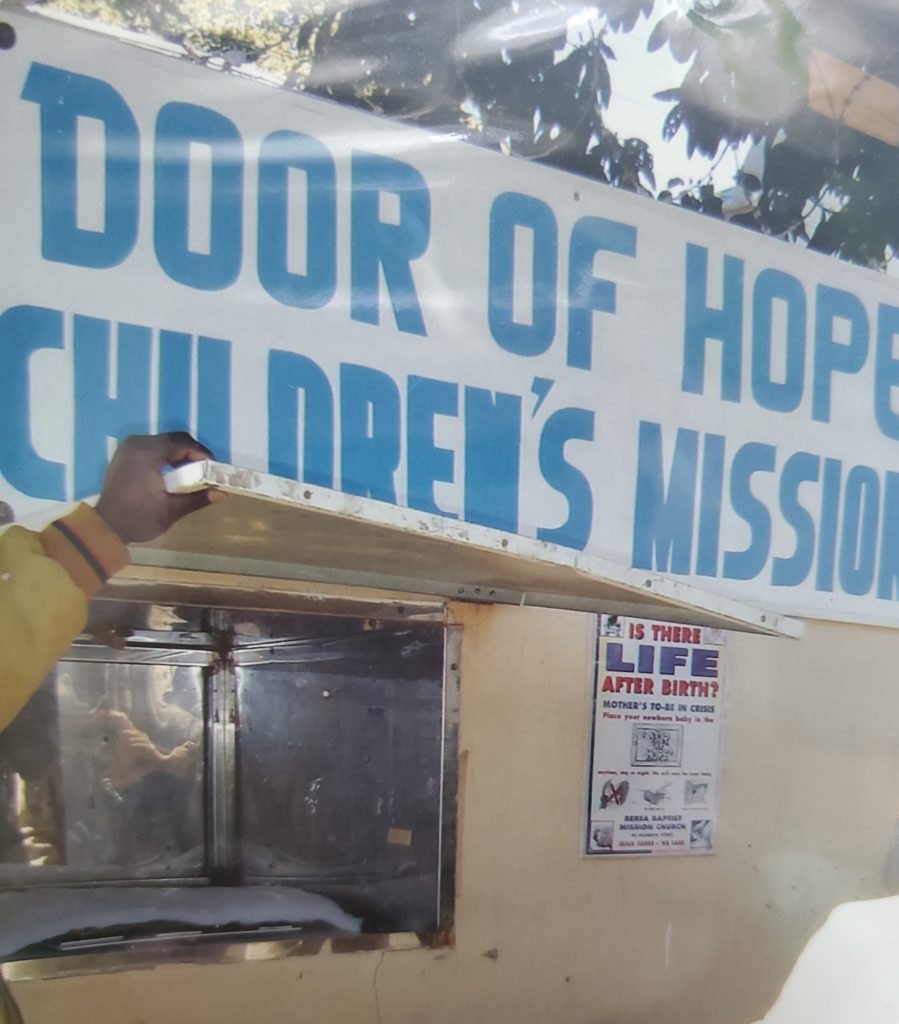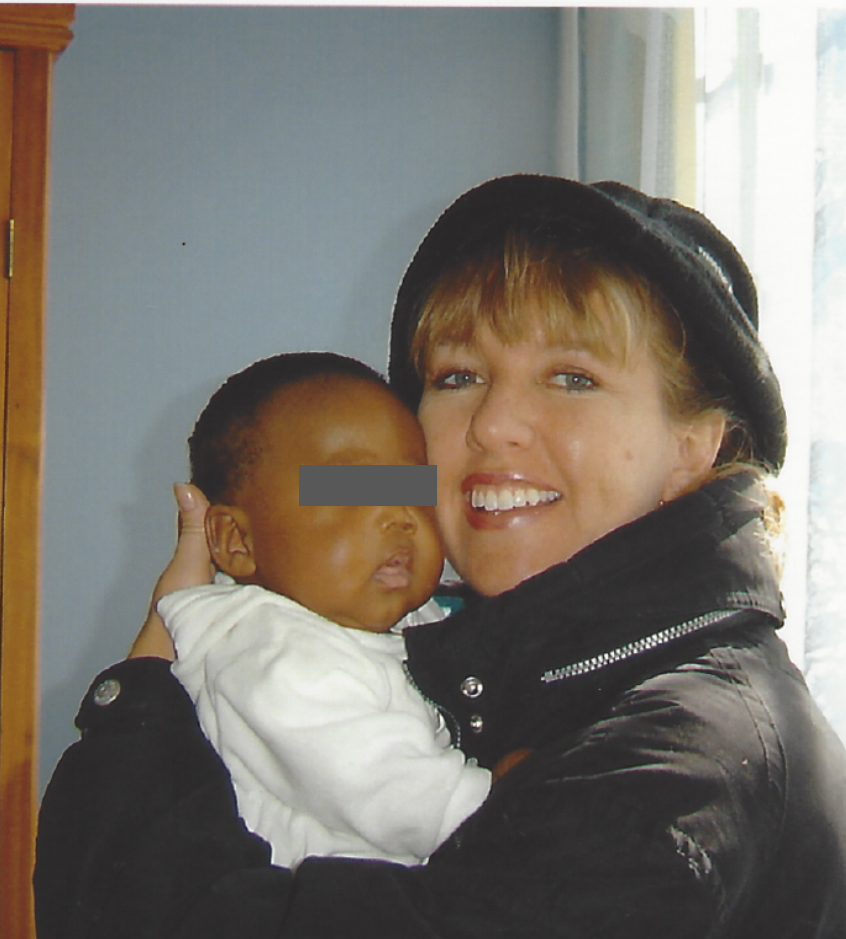The Door of Hope
In 2003, I traveled to South Africa with my uncle and a group from his church to volunteer at a small children’s mission called the “Door of Hope.” The mission was a safe haven for infants who might otherwise be abandoned. The country was in the grips of the HIV crisis and the social support network had reached a breaking point. Mothers were abandoning their children in horrific ways. Encased in the wall surrounding the mission was a door that lifted like a bank deposit box where a baby could be placed. The tray would recognize the change in weight and trigger an alarm to notify the nurses inside that a new delivery had arrived. Those workers would retrieve the baby from the opposite side without the mother having to be identified.

The idea of the baby box, or baby hatches as they are called in other countries, has been around for centuries. The first known examples were in Italy in churches along the Tiber River where desperate mothers were known to have drowned their children rather than face the difficulties of their existence. But this was the first time I’d ever heard of it or seen one.
Spending time at this mission on the outskirts of Johannesburg was a difficult and emotional experience. I had left the States on this trip with a kind of yearning, a pull to search for answers to unknown questions. I was fifteen years into my career, a fiercely independent, single woman with the drumbeat of my own biological clock pounding inside, and I could feel the tentacles of materialism clutching at my DC beltway existence. I needed to explore the world and find meaning that had thus far escaped me.
As I stood before the mission while the workers explained their baby hatch system, I imagined the state of mind of the mother standing on the other side of that wall about to deposit her child into a box and into the hands of strangers. I could imagine her pacing up and down the sidewalk outside the mission at three in the morning, debating this decision with herself. Her desperation would likely have been exasperated as she evaluated her incapacity to handle the financial obligations of raising the child or her limitations in the face of her own health situation if she were HIV positive. I found a grain of hope in the idea that giving her infant a chance at a healthy and happy life would override her own desires for motherhood. The anonymity of the moment was designed to be comforting, discreet, easier somehow. But I could imagine her desire to scream and shake her fist at the moon. This was her baby, her flesh, her future. And yet, her love was not diminished but sacrificed. Did anyone care, she must have wondered.
As I held one of those babies, I wanted to let that mother know that I cared. I could only hold that infant for a time, try to express some kindness through a momentary hug, or play games to make the child smile for a little while. I struggled to keep the utter agony of the mother’s choice from overwhelming me. How was this situation possible in the modern world? The futility of it all bubbled up inside as I tried to make sense of it. I was a stranger to that child and to that mother but for a moment we were all connected in the simplicity of caring for each other in a loosely bound thread.

Later, during this trip, I learned of a Zulu concept called “Ubuntu.” It’s a profound idea of humanity. Archbishop Desmond Tutu described this concept as meaning “My humanity is caught up, is inextricably bound up, in what is yours.” The idea that we were all bound together in this thing we call community was a novel concept to this independent American. But it perfectly described this brief encounter.
I am haunted by these photographs now. Back in my fast-paced life filled with routine and stress, I go back to this moment to revisit my epiphany about our connectedness. Had I put into practice my lessons from this visit? Had I been transformed or only touched by a single moment? Had I inserted myself into a complex situation and then simply walked away? I appear delighted in this photograph. It’s amazing what we can hide behind a smile because, in reality, I was heartbroken. I had accomplished so little other than a brush with an innocent life in another country at a fragile time for all of us. A small fissure in my heart may have healed while an unnamed canyon had erupted in my soul.
Still, hope is a powerful elixir. This child would now be coming into adulthood. I’ve wondered if he was embraced by a family and experienced a childhood full of love. I’ve pondered whether he ever searched or mourned for his biological mother, whether he faced hardships as a teenager or found bonds of friendship within his community. I’ve contemplated if he’s going to school or will find a profession he enjoys and perhaps be a parent himself one day. The experience gave me a concept of humanity and our existence that I was seeking. Yet, I wonder if that baby found the fulfilling life that his mother envisioned for him.
And I’ve grappled with the idea that I’ll never know for certain.



Wow ! I so wished that adoption process would have been easier so you all could have put a few of those babies in your suitcases?. This is a sweet picture with heart felt words ?
?
While there is sadness and frustration…your words ring of hope and inspiration for us to do better and seize whatever moments we can… to do more…connecting. Thank you for a human distraction from my “fast paced life”.
Exactly. Definitely need more connection!! Glad you found it a worthwhile read.